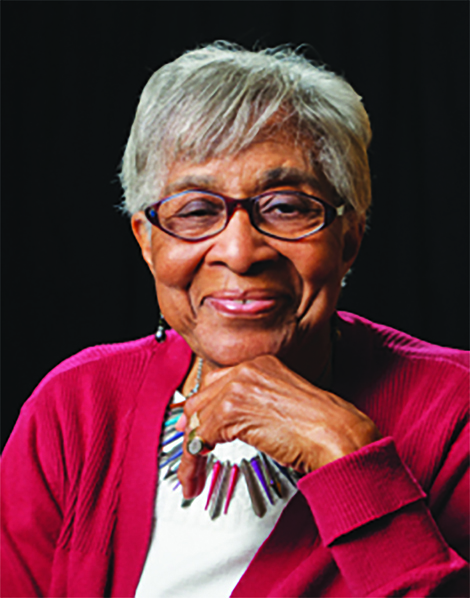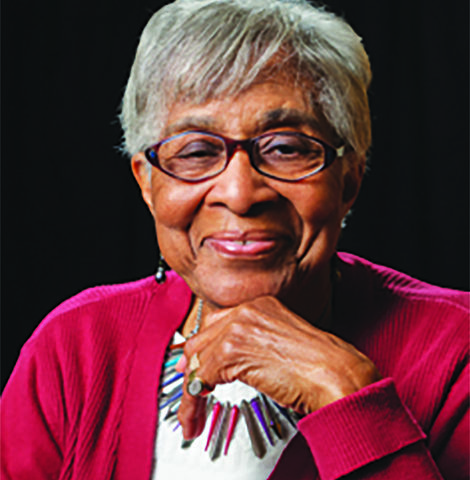Rosa Franklin never thought a 60-unit, multi-story apartment building for low-income seniors in Tacoma would be named for her. But it’s a logical honor to Mercy Housing, which developed Rosa Franklin Place to meet the kind of community needs that Franklin championed as an activist and political leader.
From her humble roots as the youngest of 12 children in her family in a small South Carolina town, to becoming the first African American woman elected to a seat in Washington’s state Senate, Franklin, now 94, has been a tireless community advocate for communities.
Officials of Mercy Housing, a national non-profit developer and manager of low-income housing in Washington and 20 other states, explained the naming of Franklin Place, which occupies a corner of Martin Luther King Jr. Way in the Hilltop area, recognizes the “dedication of Franklin and others like her” who helped the non-profit organization develop affordable housing.
“I am so honored. I never expected it,” Franklin said. “I was doing my life’s work. I was just doing what I am here for.”
Franklin first moved to Tacoma in 1954 when her husband was stationed at Fort Lewis (now Joint Base Lewis-McChord). After being stationed in Germany, the family returned to Tacoma in 1965.
“The original neighborhood that we lived in, Hilltop, was very vibrant. At that time, it was the center of Tacoma. We had a great downtown area with shopping, great jobs, and homeownership. But when we came back, and after the Civil Rights Act (of 1964), things had changed. Like a lot of cities across the country, we saw the flight from the cities, and the city center deteriorated. That is when I became really involved in my community, because I came from a family that were quite community involved. They helped each other and lifted each other up,” Franklin said.
Franklin, who worked for 42 years as a registered nurse, had also long volunteered in her community, taking on causes such as access to housing and healthcare. A friend convinced her to run for elected office, but “I didn’t want to do it,” Franklin said. “Leadership comes in different ways. I didn’t seek leadership. I was concentrating on my profession because I saw what was happening in the field of nursing. Not everyone was getting care, not everyone was treated the same. It was really about caring for those that could not, and giving them a voice.”
Franklin ran for Tacoma City Council. She lost, but the experience sparked her passion for local politics while continuing to fight for social justice.
“When you ask yourself the hard questions, and you answer them with the things you really want to change, then you go for it,” she said. “If you want to be a servant leader, want to see things change and lift people up, then I say, truly, go for it.”
In 1990, Franklin was elected to the state House of Representatives. When the 29th District’s state senator died in 1993, Franklin was appointed to the seat, making history as the first African American woman in the Senate. She kept the seat for the next 18 years until retiring.
“In the Senate, my issues were the issues affecting the lives of people,” Franklin remarked. “And the rest is history.”
That history includes Franklin sponsoring the Washington Housing Policy Act, which helped establish affordable housing as a priority. She also established the Governor’s Interagency Council on Health Disparities, for issues involving race, ethnicity, and gender.
Today, Franklin shares the same Tacoma home with her husband that they’ve lived in for the past five decades. It was built by a Black contractor, when there weren’t many construction jobs that went to Black contractors—another way she has lifted the community around her.
When asked about her hope for the future, Franklin responded, “If you look back historically, each generation has its issues and problems, and you can’t let that stop you. This generation will be preparing for tomorrow’s generation. My hope is that you do not exclude the previous generations, and the lessons we have learned.”

